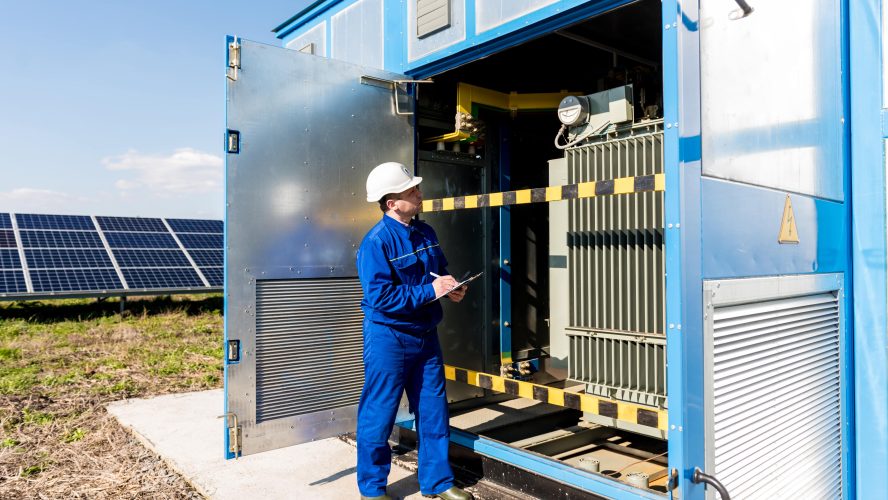If you intend to buy a solar panel, then one of the essential components of this tool you are going to need is a solar charge controller. The tool, which is also known as the solar charge regulator, plays a very important role in the entire functioning of a solar panel.
Without the solar charge controller, it might be harder for you to use your solar panel properly. Why this? You might find yourself interested in knowing. Well, for you to understand better, you need to know that there are cases where the solar might send more voltage to the battery than that battery can handle.
In the event that such a thing happens, there is a very high chance that it might result in the damaging to your battery. A damaged battery will send you more additional expenses of having to acquire another battery for you to continue enjoying the use of your solar panel.
Let’s see first ‘what is a solar charge controller’
What Is A Solar Charge Controller?
A solar charge controller works as the storage of solar power electricity. This controller is used to keep the battery from overcharging. The current is coming from the solar panel, and excess power is stored in the controller, and it is programmed with the 15-A and 200-W units. The solar charger is increasing solar energy by 30%.
For your information, there have even been cases in the past where a high voltage sent to the battery from a solar-paneled to an explosion. This is exactly why it is of great importance to make sure that there is a regulation on the amount of solar voltage that goes to the battery.
If you do not find a way of dealing with this problem, then you might have to keep replacing your battery every now and then. If you do not want that to happen, then better make sure you have a well-installed solar charge controller.
Why Do You Need A Solar Charge Controller?
There are many reasons that make it necessary for you to acquire a solar panel. To understand these benefits in detail, you need to know exactly what a solar charge controller is. Once you know it, you will then understand and appreciate its role in the entire process of solar charging and the energy associated with the same.
- The primary role of the solar charge controller is to make sure that there is no excessive voltage sent to the battery. This way, your battery will stay safe amid any high voltage threats from your installed solar.
- The essence of a solar charge controller is to make sure that your battery does not overcharge under any given circumstances. Thus, if you wish to bring out optimal performance from your solar system while at the same time keeping it safe, then you might want to use a solar charge controller.
This way, you will enjoy a long-lasting battery with your solar panel as well.
What Are The Types Of Solar Charge Controllers?
There is a great variation in the types of solar charge controllers. As such, if you are looking for any, then chances are you are going to find yourself in a position where you might have to choose from the many that are available. Unfortunately, if you do not know what the right types of these controllers are, then you might have issues selecting the right one for yourself.
- One thing you need to know is that these solar charge controllers tend to work in different ways. As such, getting the best performance out of any of them requires you to look for nothing but the best. Not knowing what this solar charge controller is might lead to a lot of confusion on your end.
- This is exactly why it is essential to undertake this entire selection process with a lot of care. You need to find a way to tell if you are working with the best solar charge controller in the business or not.
This is why you need adequate information on this issue to help you establish which one of these controllers is the best for you.
What Are The Roles Of Solar Charge Controllers?
The roles played by the solar charge controllers cut across all these devices. For you to know mppt solar charge controller even better, it is also important for you to, first of all, make sure that you have a better understanding of this tool.
If you have no idea of what these controllers do, here is some information about the same.
1. They Prevent Overcharge
When you are charging a battery using a solar panel, and it gets full, that does not mean the charge stops there. The charge will go on and on if it is allowed, which might, in the end, result in damage to the battery.
This is exactly where the solar charge controller comes in. It prevents any potential incident of overcharging which might result in damage to your battery.
2. It Helps In Controlling A Load
The solar charge controller is designed in such a way that it can switch off and on the DC current.
This helps in making sure that the device needs are adequately addressed.
3. It Helps In Blocking Reverse Current
When solar panels have lower voltage compared to the battery, then the current might actually flow backward. This happens too in many cases and especially at night.
When such a thing happens, it might lead to a massive escape of power, leaving you disadvantaged in the end.
However, if you have a solar charge controller, then you will be able to deal with this problem. You will not have to incur the inconvenience of having to see your power sucked back to the solar. The controller will help you to make sure that this problem is well dealt with.
There are also other cases where solar charge controllers are used for other purposes, which include turning on and off lights. However, the use of these devices for these roles is very minimal and, on very rare occasions, not always.
Types Of Solar Charge Controllers
There are many types of solar charge controllers. This means if you need one of these many types, you are going to need to be very careful. If you do not choose the right type, then you might end up with some form of problem in the end.
For you to make the right decision in this regard, there are some factors you need to consider when choosing a solar charge controller.
Sticking to these factors will enable you to get nothing short of the best solar charge controller from the market.
Here are some of the factors you need to consider when choosing a solar charge controller.
The Type Of Solar Charge Controller
There are many types of solar charge controllers, but the main ones of them are the following:
- Shunt charge controllers
- PWP controllers
- MPPT controllers
The Shunt Charger Controllers
This is one of the oldest types of solar charge controllers. Much more like its name suggests, the type of controller uses the most basic concept to make sure that a battery does not overcharge.
The design of these controllers is in such a way that the current flows to the battery at the highest possible rate.
- When the battery voltage gets to a certain level of preset threshold, there is a switch that is activated within the controller. This switch then blocks the flow of current to the battery, making sure that your battery does not overcharge.
- When the voltage in the battery drops below the required threshold, the switch gets activated to make sure that there is a continuous flow of voltage to the battery. The switch will remain on until the upper preset threshold is reached again.
- Even though the shunt solar charge controllers were very popular back in the day, they are not so common in the current times.
- These controllers became somehow obsolete and have now been replaced by much better and superior controllers. However, you can still use them, especially if you are looking for a much simpler and more affordable solar charge controller.
PWM Charge Controllers
This is one of the modern solar charge controllers there is in the market. The PWM is an abbreviation for pulse width modulation in full. Unlike the case of shunt controllers, which cut the flow of current at once, this type of controller only reduces it.
These kinds of controllers monitor the flow of current or voltage if you like to the battery. As the battery gets charged to almost full capacity, the PWM controller reduces power or voltage flow to the battery. However, much as this is the case, there is still a problem that comes with it as well.
For it to work out, then the solar battery and solar panel itself must have similar voltages. For instance, if you have a solar panel of 12 volts, then you need to have a battery of either this voltage or something close to it.
Other than this, these kinds of solar charge controllers are also not designed to handle higher voltages. This means in case of any high voltage then, the controller might actually get overwhelmed and fail to deliver.
The MPPT Charge Controllers
This is the maximum PowerPoint Tracking. This is the newest kind of solar charge controller on the market. These controllers monitor the battery charging voltage rate. When the charging goes on and the battery to almost its full capacity, the controller switch comes on automatically, which then reduces the current flow.
The current flow goes down slowly until such a time when it nears its full capacity when it finally stops the flow to the battery. Doing, so stops or rather prevents the battery from overcharging, which helps in increasing the life of the battery.
Therefore, if you have a solar panel as well as a battery that operates on two different voltages, then this is the kind of solar charge controller you need. With this kind of controller, you will be able to deal with any problems that involve the suck back of voltage and others.
If you are also dealing with high power and you need a tolerant solar charge controller, then this is what you need to go for. This kind of solar charge controller is designed in such a way that it can actually withstand high power voltage, unlike the others which are shown in the text above.
What Are Your Needs
That is it about the solar charge controllers. If you are choosing a solar charge controller, you also need to consider what your needs are. This is also very important to note as it will help you get the best solar charge controller in the market.
If you have high power and you feel that might actually affect your battery, then better look for an MPPT charge controller. It is the kind of solar charge controller that is designed for this kind of voltage. With it, you will be able to handle or rather with the whole issue of power voltage control from your solar to your battery.
Easy Of Set Up
It is also not a bad thing for you to consider the ease of setup when choosing a solar charge controller. You do not need something that is so complicated to set up. Instead, you need an easier solar charge controller that you can even set up yourself.
Thus, before you buy any, it is very important for you to, first of all, consider how easy it is for you to set up the controller.
Buying a solar panel charge controller that is not so easy to set up then might cause you some problems in the end. Better go for something that you can set up all by yourself without having to struggle a lot.
Frequently Asked Questions
If the batteries are complete, the system will stop absorbing the solar power from the system. But the electricity generation’s rations will be the same. So unless there is extra space left for power storage, the power will not be saved.
No, the solar charger controller can not work without a battery. The charger controller regulates the amount of voltage that is flowing from the solar panels to your systems and batteries.
Solar panels can not be connected to the motors. If you like to drive the engine and the current ratings, it will go to work.
Yes, solar panels can work without an inverter if you load the appliances which are operating with the DC inverter; it comes to convert the DC to AC and enables the operations of the alternating loads.
Conclusion
If you have to buy a solar charge controller, then listed above are some of the factors you need to consider. These factors will help with ways how to select a solar charge controller that will help you get the best out of your solar energy. So what is your opinion about solar charge controllers? Do not forget to share your opinion through the comment sections. Which types of controllers do you prefer for your domestic or office use.
Read More:














